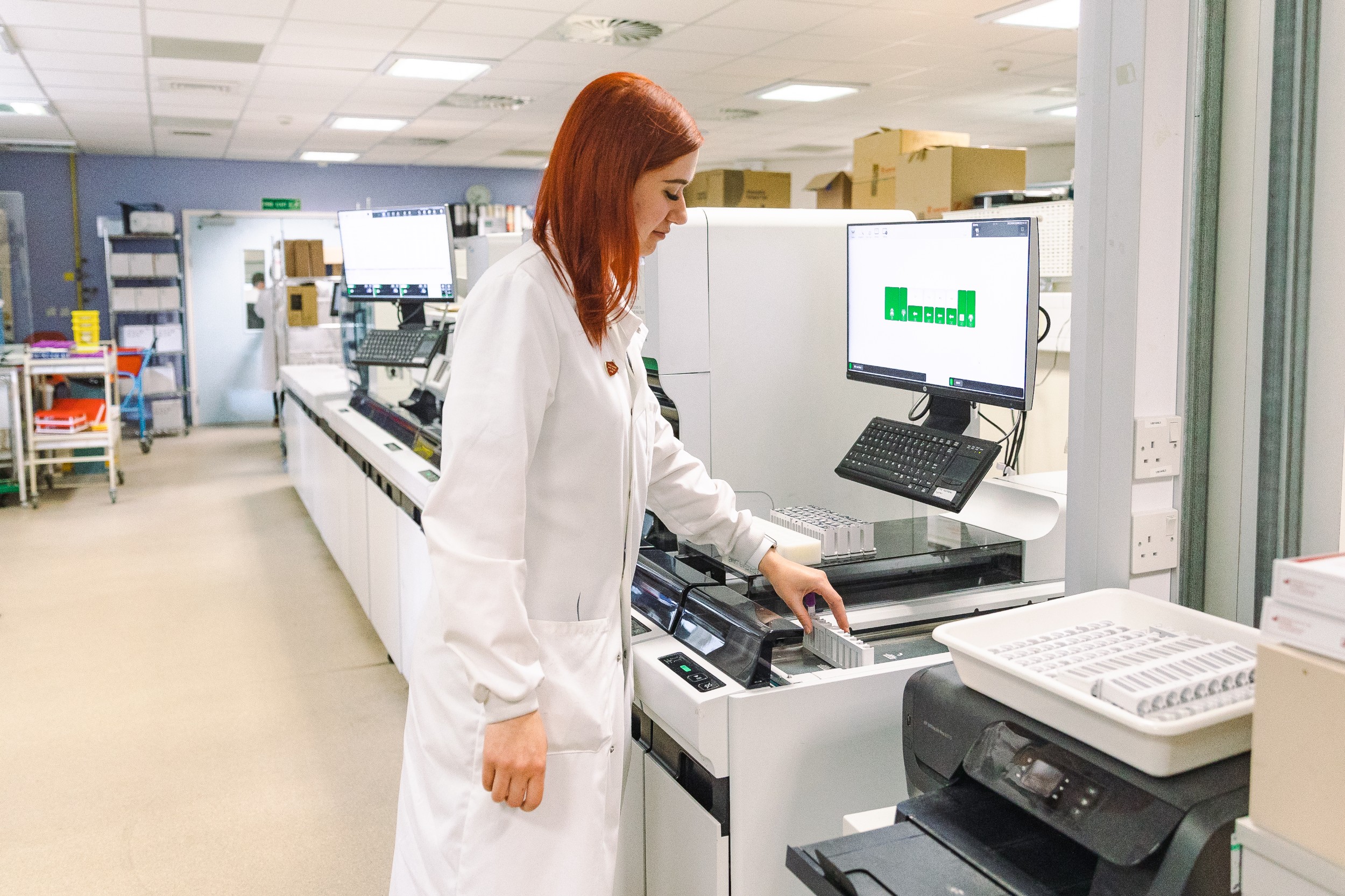
Test Directory
Our Pathology Laboratories are mainly accredited to ISO 15189:2022, however due to the nature of the way in which UKAS grants accreditation, it is the test that is accredited and not the laboratory.
UKAS maintains a register of laboratories that are accredited to ISO 15189:2022, which can be accessed via the UKAS website. The UKAS website holds a schedule of accreditation for the laboratory that lists the individual tests for which the laboratory are currently accredited for. Other tests may be awaiting completion of Extension to Scope (i.e. new test that is in the process of being added to the schedule of accreditation). Therefore pathology reports may contain a combination of accredited and unaccredited tests.
Please be assured that it is normal practice for laboratories to be accredited for a number of tests, however there could be a number of tests that are unaccredited. This does not necessarily indicate that these tests are of inferior quality, the tests have the same level of internal and external quality assurance associated with them, they are just yet to be officially accredited by UKAS.
Users of the CDDFT pathology service may wish to be certain that all tests they are sending for analysis are accredited by UKAS. This information can be obtained using the link above to the UKAS website. After viewing the UKAS Schedule of Accreditation, if you would like to discuss the accreditation status of any of our tests please contact the Pathology Quality Manager initially to discuss: Rebecca.
During 2025 the bloods sciences department will undertake a full equipment refresh, meaning at some periods tests may be unaccredited whiles we undergo re-assessment.
The departments are working closely with UKAS to ensure we maintain our accreditation during this period.
This does not affect the quality or standards of results produced: it is a temporary state whilst we undergo the equipment refresh, should you wish to know which tests are unaccredited at time of testing please contact the Quality Manager: Rebecca.
The Clinical Biochemistry departments on both acute sites are undergoing a full equipment procurement. Over the next year various new analysers will be introduced to update our technology and improve the service offered to patients. From Tuesday 14 October, both Durham and Darlington will introduce the Siemens Atellica chemistry analysers. The following analytes are performed on these analysers:
|
Albumin |
Salicylate |
|
ALP |
Sodium |
|
ALT |
Total CO2 |
|
Ammonia |
Total protein |
|
Amylase |
Transferrin |
|
AST |
Triglyceride |
|
Total Bilirubin |
Urate |
|
Conjugated Bilirubin |
Urea |
|
Calcium |
Lithium |
|
Chloride |
|
|
Cholesterol |
Urine Sodium |
|
Creatine Kinase |
Urine Potassium |
|
CRP |
Urine Urea |
|
eCreatinine |
Urine Creatinine |
|
Ethanol |
Urine Chloride |
|
Gentamicin |
Urine Magnesium |
|
Gamma GT |
Urine Phosphate |
|
Glucose |
Urine Calcium |
|
HDL-cholesterol |
Urine albumin |
|
Iron |
Urine Protein |
|
Lactate |
Urine Uric Acid |
|
Lactate dehydrogenase |
Faecal calprotectin |
|
Magnesium |
CSF glucose |
|
Paracetamol |
CSF lactate |
|
Phenytoin |
CSF protein |
|
Phosphate |
Biochemical Fluid analysis |
|
Potassium |
|
There is no change to sample types for the tests performed on this analyser.
The following analytes are the only tests to have alterations to reference ranges. This will also be indicated on reports:
|
Lactate dehydrogenase (LDH) |
120 – 246 U/L |
|
Creatine Kinase |
Female: 25-200 U/L Male: 40-320 U/L |
Note for LDH, due to methodology change, results are not comparable between old and new assays, please interpret with respect to new reference range.
During this transition phase, whilst the laboratory remains UKAS accredited, the results generated from the new analysers have yet to be assessed by UKAS. As such these assays are temporarily unaccredited but users can be assured that the laboratory continues to follow the quality policies embedded into the department. Internal quality control and external quality assessments continue to be performed to ensure that the standards for reporting results are maintained.
If you have any questions please contact the duty biochemist team via email on: cdda-tr.